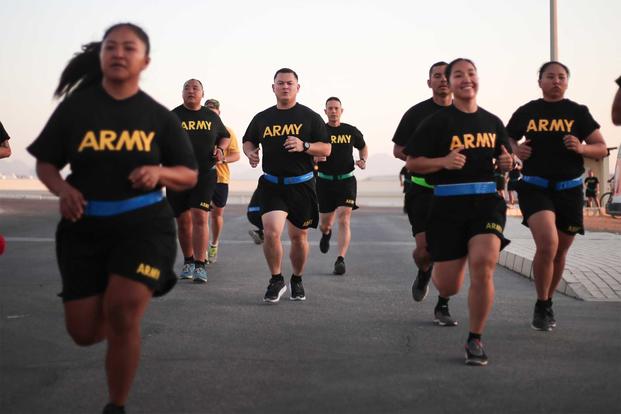The U.S. Army is evaluating a new version of its gender-neutral Army Combat Fitness Test, one that would likely create "gender-specific" evaluation categories for men and women when it comes time for promotion.
The move would back away from the Army's original plan to have the new six-event test be gender-neutral in all aspects. It's in recognition of data showing that physiological differences between men and women cause individual scores to differ by 100 points on average by gender, according to an Army official familiar with the effort.
The new approach to the ACFT, comes after lawmakers, concerned about fairness, directed the service to conduct an independent review of the test, set to replace the current Army Physical Fitness Test.
Read Next: Coast Guard to Enact Sweeping Safety Reforms in Wake of Deadly Conception Boat Fire
Task and Purpose first reported this story.
The ACFT 3.0 will likely eliminate the three separate scoring categories for military occupational specialties and move to a single scoring standard for all soldiers, the Army official said.
"To serve in the Army, every soldier will have to meet the same standard," the Army official said.
But instead of judging men and women's raw scores against the same rubric, the Army is proposing separate percentile bands for men and women that would be gender-blind when soldiers go before a promotion board.
"We are not going to artificially inflate the raw score for women, but we have to figure out a way to make it fair to both genders," the Army official said. "We need a fair way that accounts for physiological differences."
The proposed solution involves the creation of "gender-specific" percentile bands broken into levels such as Top 1%, Top 10%, Top 25% and Top 50%, according to an Army briefing slide circulating on social media.
To maintain fairness, promotion boards would only see a gender-blind percentile band rating, the Army official said.
"All they are going to see for evaluation is which percentile the soldier falls into," the Army official said. "The gender identity will not be included in that information. If anything, it's a more gender-neutral assessment process because it doesn't show the raw scores."
All soldiers in the active-duty, National Guard and Reserve force have been authorized to take the six-event ACFT since Oct. 1, 2020, but test scores will not count against soldiers until March 2022.
Army leaders announced in January that the service would conduct an independent review of the ACFT as directed by the Fiscal 2021 National Defense Authorization Act.
Congress called for the review after lawmakers and advocacy groups began to question the fairness of the ACFT for specific groups.
Sens. Kirsten Gillibrand, D-N.Y., and Richard Blumenthal, D-Conn., raised concerns in mid-October about whether the test was fair to both men and women, and whether it sets unrealistic requirements for those serving in fields with few physical demands, such as medical personnel, judge advocates or cyber specialists.
The Service Women's Action Network, or SWAN, in mid-November said it is unclear whether the ACFT, which was designed to be gender-neutral, is fair to female soldiers, arguing that fewer than 50% of women passed the ACFT in the third quarter of 2020. That was partly due to the methodology the Army used to standardize the test, called the Baseline Soldier Physical Readiness Requirements Study.
Sgt. Major of the Army Michael Grinston said that the review would likely be complete by the end of the year.
Like the ACFT 2.0, the new 3.0 would still be age-neutral and consist of six events: the maximum deadlift; standing power throw; hand-release push-ups; sprint, drag and carry; leg tuck; and two-mile run.
The 3.0 would add a 1-100 point scale to the alternate plank event for soldiers who struggle to perform the minimum requirement of one leg tuck. The 3.0 would allow soldiers to choose between the plank and the leg tuck, a change from ACFT 2.0 which required them to attempt the leg tuck first.
The Army official stressed that the proposed ACFT 3.0 is still a concept that will have to be evaluated before it's approved.
"Soldiers don't need to worry about the percentile bands right now," the Army official said. "The Army needs soldiers to take the test, so it can see if the concept is valid for all soldiers."
-- Matthew Cox can be reached at matthew.cox@military.com.
Related: SMA Reveals Timeline for Army's Independent Review of ACFT














